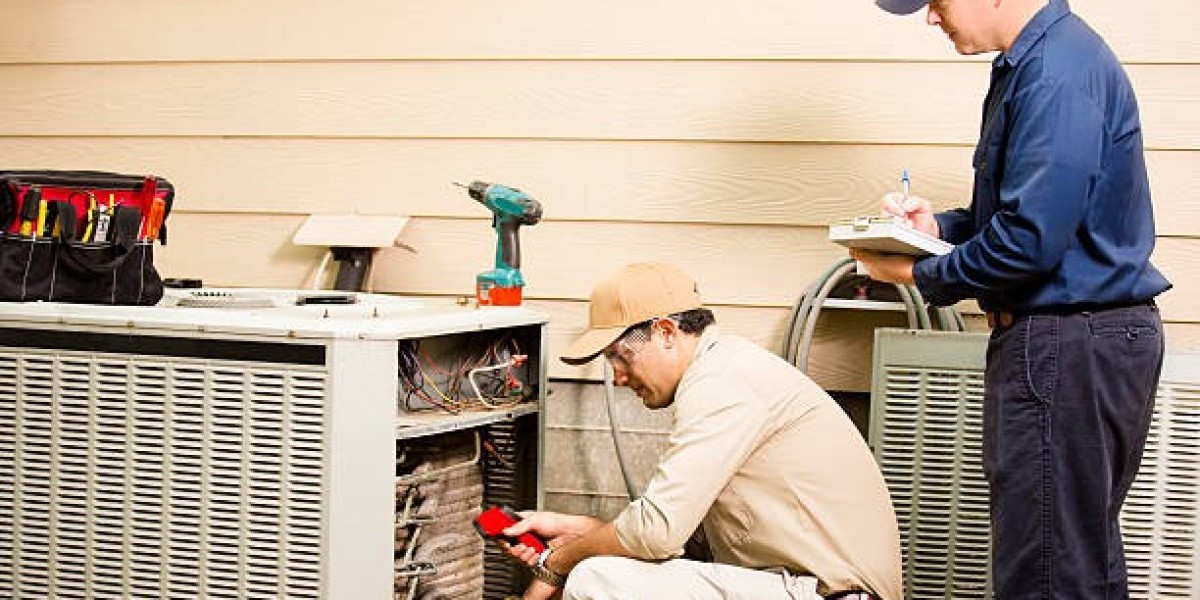Few things are more frustrating than walking into your home on a scorching summer day, expecting a refreshing blast of cool air, only to be greeted by warm, stuffy air from your air conditioner. An AC blowing hot air can quickly turn your home into an unbearable environment, making rest, relaxation, or even sleep difficult. More than just a comfort issue, this problem can sometimes signal serious malfunctions that require immediate attention. That’s when calling an emergency air conditioning service becomes the smartest choice.
In this article, we’ll break down why your AC may be blowing hot air, the dangers of ignoring the issue, and when you should call for emergency help instead of waiting for a regular service appointment.
Common Reasons Your AC Blows Hot Air
Understanding why your air conditioner may be pushing out warm air can help you make better decisions when the problem arises. While some issues are minor, others require immediate intervention to prevent further damage.
1. Low Refrigerant Levels
Refrigerant is the lifeblood of your cooling system. It absorbs heat from the indoor air and releases it outdoors. If your AC is low on refrigerant—often due to a leak—it won’t be able to cool effectively, leading to warm air blowing through your vents. A refrigerant leak can also damage the compressor if left unchecked, resulting in costly repairs.
2. Thermostat Malfunction
Sometimes the problem isn’t with the AC unit at all but with the thermostat. If the thermostat is incorrectly set, broken, or has dead batteries, it could signal your system to run improperly, causing warm air circulation.
3. Electrical Issues
Faulty wiring, blown fuses, or tripped circuit breakers may prevent your AC system from functioning properly. Electrical issues are dangerous to troubleshoot without proper training, so this is a strong case for calling in a professional.
4. Dirty Air Filters
Air filters clogged with dust, dirt, and pet dander restrict airflow and cause your system to work harder. When airflow is blocked, your unit may freeze up or fail to circulate cool air, resulting in warm or lukewarm air blowing indoors.
5. Compressor Failure
The compressor is often called the heart of the air conditioning system. If it fails, your AC simply can’t perform its cooling function. Since compressors are complex and expensive to repair or replace, this issue often calls for immediate attention from an emergency air conditioning service technician.
6. Frozen Evaporator Coils
When refrigerant levels are low or airflow is restricted, the evaporator coil can freeze. Once this happens, your system will blow warm air or none at all until the ice melts—and by then, more damage may already be done.
Why Ignoring the Problem Can Be Costly
You might think that putting off repairs until a regular appointment is fine, but that can backfire in several ways.
Health Risks – High indoor temperatures can pose health risks, particularly for children, the elderly, and people with respiratory issues. Prolonged exposure to heat can lead to dehydration, heat exhaustion, or worse.
System Damage – Operating an AC with existing issues can put strain on other components, leading to cascading failures. What could have been a simple repair may turn into a full system replacement if neglected.
Skyrocketing Energy Bills – A malfunctioning air conditioner often consumes more power to compensate for reduced efficiency. That means higher utility bills for worse cooling performance.
Reduced Comfort and Productivity – Living in a hot, uncomfortable home makes it hard to relax, sleep, or work efficiently, especially during extreme summer heatwaves.
When to Call Emergency Air Conditioning Service
Not every AC problem requires emergency attention. For example, replacing a dirty filter can often wait until the next day. But there are certain situations where you should never delay and should immediately call an emergency air conditioning service:
1. AC Blowing Only Hot Air During Extreme Heat
If your AC stops cooling during a heatwave, your home can quickly become dangerously hot. This is particularly urgent if young children, elderly family members, or pets are present.
2. Strange Smells or Burning Odors
A burning smell may indicate electrical problems that pose a fire hazard. This requires immediate inspection from a qualified technician.
3. Loud or Unusual Noises
Grinding, screeching, or banging noises can signal serious mechanical issues. Ignoring these sounds could lead to total system breakdown.
4. Rapid Temperature Spikes Indoors
If your home heats up uncomfortably within minutes despite the AC running, it’s clear the system is failing to do its job. Fast professional help is the safest solution.
5. Water Leaks or Ice Buildup
Water pooling around your unit or ice forming on the coils may indicate a refrigerant issue or frozen evaporator coil. Both need immediate attention to prevent damage.
What to Expect From Emergency AC Service
When you call an emergency air conditioning service, trained professionals arrive promptly to diagnose and fix the issue on the spot. Here’s what usually happens:
Inspection & Diagnosis: The technician checks for common causes such as refrigerant leaks, compressor failure, or thermostat malfunctions.
On-the-Spot Repairs: Many issues, like electrical fixes or replacing parts, can be handled immediately to restore cooling.
Preventive Advice: After the repair, technicians often recommend preventive steps to avoid future emergencies, like regular tune-ups or filter replacements.
Preventing Future Emergencies
While you can’t always avoid breakdowns, you can reduce the risk by maintaining your AC system regularly.
Change Filters Regularly: Replace or clean filters every 1–3 months to maintain airflow.
Schedule Annual Maintenance: A professional tune-up before summer helps catch small issues before they turn into emergencies.
Keep Outdoor Unit Clear: Remove debris, leaves, and dirt from around the condenser unit to ensure proper airflow.
Monitor System Performance: If your AC starts making noises, blowing weak air, or showing unusual signs, address them quickly instead of waiting.
Final Thoughts
An air conditioner blowing hot air isn’t just a nuisance—it can be a serious problem, especially during extreme summer heat. From refrigerant leaks to compressor failures, several issues can cause your AC to stop cooling effectively. While some minor problems can wait, others demand immediate action to protect your comfort, health, and safety.
That’s where calling an emergency air conditioning service makes all the difference. These professionals respond quickly, identify the root cause, and restore cool comfort to your home without unnecessary delays.
So, the next time your AC unit suddenly stops cooling and starts blowing hot air, don’t suffer through the sweltering heat or risk further damage to your system. Take action fast and call an emergency air conditioning service you can trust. Your comfort—and peace of mind—are worth it.






